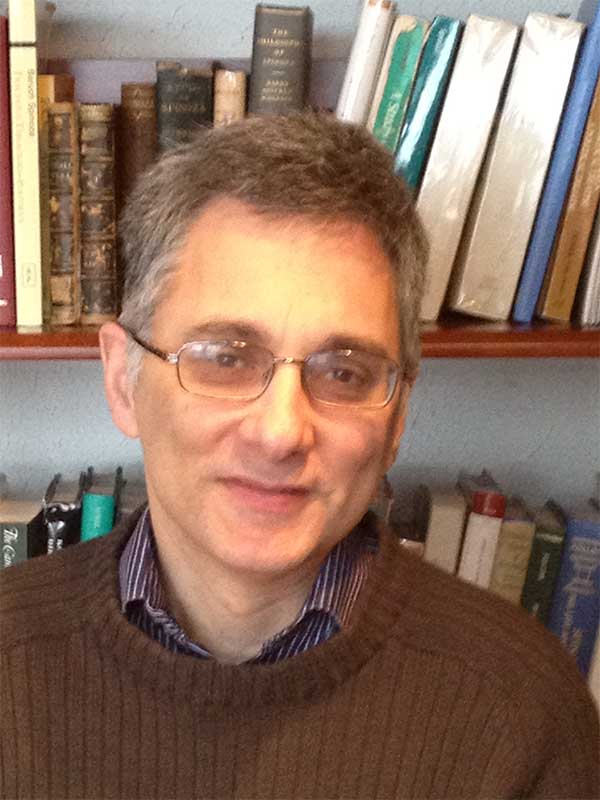One is the Loneliest Number:
Monism in Spinoza
A lecture by Michael Della Rocca, professor of philosophy at Yale University, with
an introduction by Larry M. Jorgensen, associate professor of philosophy, Skidmore
College
Thursday, March 9 at 7:30 p.m.
Davis Auditorium, Palamountain Hall • The event is free and open to the public.

Michael Della Rocca grew up in Brooklyn, New York. After receiving his B.A. from
Harvard University and his Ph.D. from the University of California at Berkeley he
moved to Yale University, where he has taught since 1991 and is currently Andrew Downey
Orrick Professor of Philosophy. He is the author of two books on Spinoza, Representation and the Mind-Body Problem in Spinoza (Oxford 1996) and Spinoza (Routledge 2008) and of numerous articles in early modern philosophy and in contemporary
metaphysics. He is currently embarked on a new project entitled The Parmenidean Ascent, which argues for a radically monistic view of the world while challenging the basic
methodologies prevalent in contemporary philosophy.
This presentation is part of the Jacob Perlow Event Series and is co-sponsored by the Departments of Philosophy and Religious Studies and the Office of Special Programs.
About the Jacob Perlow Series: A generous grant from the estate of Jacob Perlow—an immigrant to the United States in the 1920s, a successful businessman deeply interested in religion and philosophy and a man who was committed to furthering Jewish education—supports annual lectures and presentations to the College and Capital District community on issues broadly related to Jews and Judaism.